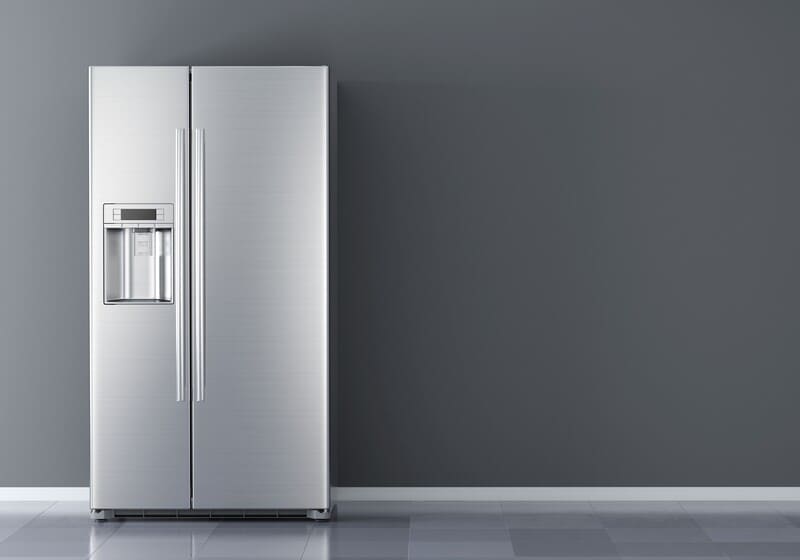When we think of ways to save energy, we don’t often turn to the fridge. It just does its thing, right? Well, not quite. Here are eight ways to make your refrigerator more efficient.
First, it’s important to note that if your refrigerator is 15 or more years old, you may not be able to get the most out of it energy-wise, even if you do everything right. Older models are simply never going to be quite as efficient as newer models, and more sophisticated units are coming out all the time. When you decide to replace your older fridge, opt for an Energy-Star-certified model.
Now, on to the hacks!
1. Get rid of frost if you have it.
This is much more common in older units. If your refrigerator is accumulating frost, the first thing you’ll need to do is defrost it. Otherwise, you’re automatically setting yourself up for a far less efficient fridge. That’s because frost buildup can cause fridge coils to work overtime and make it more difficult for the unit to keep at a consistently cool temperature. It’s a bit of a process, but defrosting is totally worth it—plus, who couldn’t use extra room in the freezer?
2. Open your fridge as little as possible.
One of the easiest ways to save energy is to keep your refrigerator closed. That means not leaving the door hanging open while you’re cooking and making selections quickly when you need something. The less your refrigerator has to readjust its temperature from being introduced to warm air in your home, the less it has to work and the more energy you’ll save.
3. Use your in-door water and ice.
This one goes right along with keeping those refrigerator doors closed. The less you open your fridge or freezer for beverages and ice, the less you’ll need to open your fridge.
4. Avoid putting hot or warm dishes in your fridge.
This is a small one, but it could make a big impact over time. Use Tupperware and plastic wrap whenever possible, and allow any food to cool down completely before placing it in the fridge. This helps keep heat out of your unit.
5. Remove fridge clutter.
Raise your hand if your fridge is packed at all times. If you have a big family or a penchant for cooking, it can be unavoidable. Luckily, it’s almost guaranteed that there’s an item or two in there that’s out of date. So take some time to go through your refrigerator’s contents and weed out the stuff that isn’t going to get eaten. It’s especially important not to store large items, like takeout boxes, casserole dishes and loaves of bread on the top shelf, as they could trap heat in the unit and cause your compressor to work overtime.
6. Use the power-saver switch.
Your unit might not have one of these, but if it does, it’s in your best interest to use it! Power-saver switches are connected to heaters built into the walls of refrigerator units. These heaters are designed to help prevent condensation, but the secret is that they may not even be needed. Try turning on the power-saver switch to disable this feature—you may find that no condensation builds up and you can save a little energy.
7. Keep your refrigerator away from your stove.
The heat from your stove can cause your refrigerator’s compressor to work overtime every time you go to cook. Over time, this can even wear out the unit and shorten the life of your appliance. While you may be stuck with this setup for the time being, keep in mind that ideally, your fridge should be several feet away from your stove when you mock up new design plans.
8. Clean your condenser coils.
Cleaning behind the fridge hardly ever makes the top of the old chore list, but if you’d like to have a more efficient unit, it’s a must. Dust removes heat and causes the coils to work much harder than they need to. Pulling the fridge out and sweeping under it, then using a bristle brush to dust the back will do the trick. And luckily, you shouldn’t need to do this too often.
Call National Property Inspections to have your home questions answered.
Our NPI inspectors can answer the most important questions you have about the condition and maintenance of your home. Find an inspector near you today to sell or buy with confidence.



